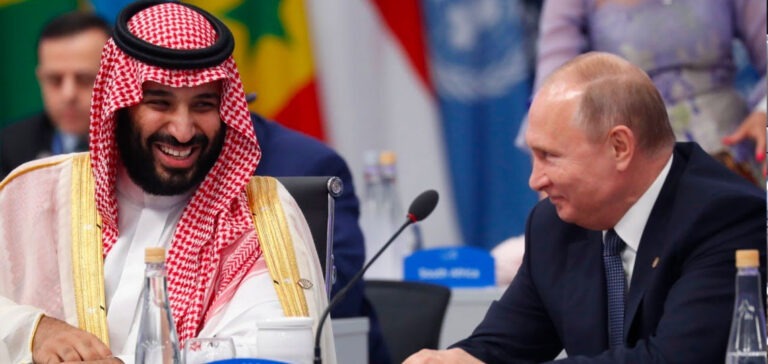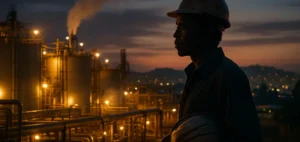The 13 members of the Organization of the Petroleum Exporting Countries (Opec), led by Riyadh, forged an alliance in late 2016 with 10 other countries, including Moscow, in the form of an agreement called Opec+. Objective: to regulate the market, which they dominate with 60% of black gold exports.
This opportunistic arrangement, born in response to the challenges posed by U.S. competition, has evolved over the years into a long-term relationship.
“All those who predicted a short life for the alliance were wrong,” summarizes Tamas Varga, at PVM Energy.
“It has survived several turbulent episodes,” including when demand collapsed at the start of the Covid-19 pandemic, “and is well on its way to lasting.” Far from destabilizing it, the Russian offensive in Ukraine seems to strengthen it: OPEC+ is united in its refusal to open the black gold valves widely, despite the numerous calls from the West to curb soaring prices.
While Russia is increasingly isolated, Wednesday’s meeting shows “that the Gulf States are still not willing to distance themselves from Moscow,” says London-based research institute Energy Aspects.
In addition to the frank cut in production quotas, the group has extended the duration of the “cooperation charter”, signed in the spring of 2020, until the end of 2023.
A guarantee of “cohesion”, in the words of Saudi Prince and Minister of Energy Abdel Aziz ben Salmane. “We have been working together since 2016 (…), this is not just a marriage of convenience,” he commented to the press, calling on other international organizations to take inspiration from Opec+.
The extension of the agreement is “undoubtedly a message”, a “good news for Russia”, agrees Cornelia Meyer, CEO of the consulting firm MRL Corporation, interviewed by AFP.
Why does the decision benefit Moscow?
Since the start of the war in Ukraine that sent prices soaring, Moscow has earned 116 billion euros from its oil exports, according to a report published in early September by the Finland-based Centre for research on energy and clean Air (CREA).
But its production has been declining since this summer, under the effect of Western sanctions, and the recent decline in prices “hinders its ability to finance the war in Ukraine,” notes Mr. Varga.
Its oil is trading at a steep discount, says Oanda’s Craig Erlam: India and China, now its main buyers, are receiving large discounts. Moscow is also faced with the entry into force of the European embargo on Russian oil at the beginning of December, and the possible implementation of price-cap mechanisms by the EU and the G7.
The decision of the Opec+, which “will stabilize the oil market”, according to the Kremlin, is therefore timely. By pulling up prices, the quota cut “will allow Russia to maximize its revenues from crude exports,” the PVM Energy analyst said.
Is this a political decision?
According to the Emirati Minister of Energy, Souhail ben Mohammed Al-Mazrouei, Opec+ is only a “technical organization”. But while the group hammers home the point that this is not a political decision, it is “very difficult to take politics out of the equation even though high oil prices are due to a war started by one of the major Opec member states,” Erlam says. They had jumped in March to nearly $140, approaching their all-time highs from 2008.
“It’s hard to hear when they continue to cooperate with Russia and refuse to condemn its invasion,” he adds. The White House immediately reacted on Wednesday, denouncing an “alignment” of the cartel with Russia. According to experts, “this is a real slap in the face” for U.S. President Joe Biden, less than three months after his controversial visit to Saudi Arabia, a traditional U.S. ally, and a few weeks before the mid-term elections.





















